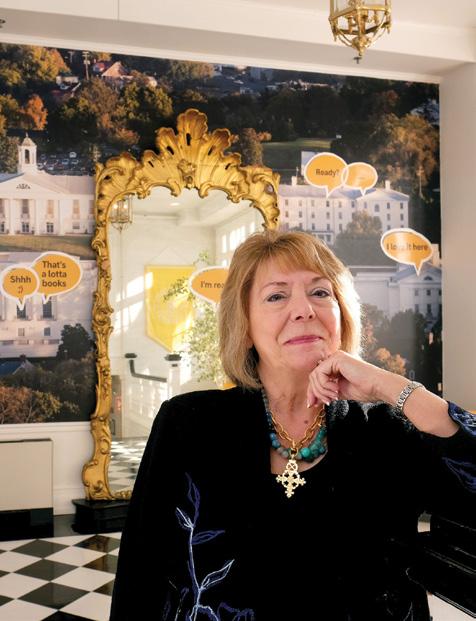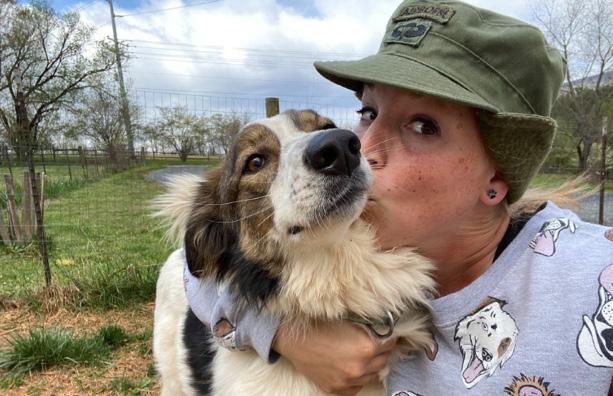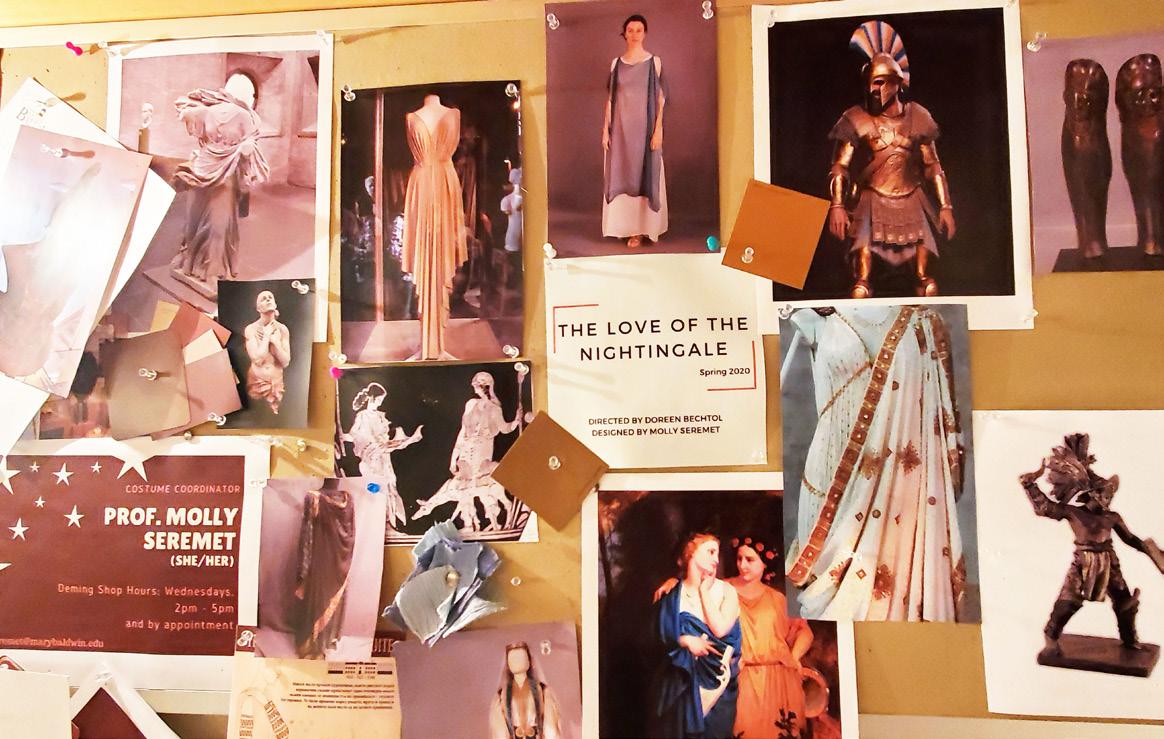
4 minute read
Must Run in the Family


All set for the Junior Dads and Family ball: Paula Krosky ’92 and daughter Rachel ’21, who is the first legacy student in MBU’s Program for the Exceptionally Gifted.
Advertisement
PEG program gets its first legacy student
BY KELLEY FREUND
Growing up, Paula Krosky ’92 and her family moved around. A lot. By the time she was 14, Paula had lived in nine different places, and during that time, she was exposed to many types of schools, but only one of those schools Paula had attended demonstrated the creativity to keep her engaged.
The push to try something new came after Paula had taken some courses with the Duke Talent Identification Program, and her local school district had no way to give her credit or placement for those classes.
“I had completed Algebra 2, but my age suggested I should be in Pre-Algebra,” she said. “And there was no other option. The schools couldn’t accommodate who I was or what I was looking for.”
That’s when she discovered Mary Baldwin’s Program for the Exceptionally Gifted (PEG). PEG is MBU’s residential boarding school-like program that gives women as young as 13 the opportunity to earn a four-year college degree. Students live in a fully supervised residence hall with their fellow PEG students, but they still have access to all the university’s offerings, like clubs, athletics, study abroad, and service learning.
The program began thanks to a grant from the Jessie Ball duPont Foundation and accepted its charter class of 11 students in 1985. Today, PEG has 20–30 incoming students each year. Across the country, there are just 12 schools with a dedicated program for early-entrance college students. MBU has the only residential allfemale program, and PEG is the only program that accepts students as young as 13, whereas most schools wait until students are 16.
PEG will celebrate the start of its 35th year this fall. Christy Baker, who serves as associate director of Early College Student Life, has been around for 20 of those years. During that time, she has seen PEG establish a tradition of inspiring both program members and their families. Younger sisters have joined after their older sisters have gone through the program, as have cousins and friends. PEG even had two brothers who were inspired by their older sister to enter as commuter students. But PEG gained its first legacy student when Paula’s daughter Rachel ’21 joined the program in 2017.
Paula thought Rachel would take a more traditional education path — the family lived in a neighborhood outside Philadelphia with a quality school district. Rachel knew her mother had gone to college at the age of 14, but she never considered that option herself until the eighth grade, when she was interested in enrolling in AP classes. She had enrolled in summer programs and online classes offered by the Johns Hopkins Center for Talented Youth, so she knew she was capable of more independent study. But the school had rules against taking AP classes as a freshman and would not bend.
Rachel decided to read up on PEG, and Paula encouraged Rachel to take the lead in applying.
“I think the girls who do best in these programs are the ones who choose to do it on their own, who embrace the opportunity for themselves,” Paula said. “I needed her to want to do it enough that she was going to invest in the application process and commit her energy to making it happen.”
Just like her mom, Rachel entered PEG when she was 14.
“Since my mom is an alumna, I have all these bits and pieces of Mary Baldwin history that are fun,” Rachel said. “Like, PEG used to be in Bailey Hall and that building was rumored to be haunted.”
As for Paula, she enjoys bonding with her daughter over things like the long walk to the Physical Activity Center.
“This has provided one more opportunity for me to connect with a teenager who might otherwise be pulling away,” Paula said. “We have those things in common that help me better identify with her at this stage in her life.”
One professor spans the gap between Paula’s time at MBU and Rachel’s. English professor Rick Plant was in his first year as a professor when Paula enrolled in his PEG class. Twenty-nine years later, Rachel took his English course during her freshman year.
While Paula majored in biology and chemistry and played on the volleyball team during her time as a student, Rachel is majoring in history with a minor in anthropology, and she works as a teaching assistant. Her mom earned her graduate degree in medicinal chemistry from the University of Michigan before completing a postdoctorate at Harvard Medical School. Since then, Paula has worked for the National Cancer Institute and a small biotech. She currently works for the pharmaceutical company Merck. Rachel hopes to one day become an archeologist and plans to attend graduate school.
As the PEG staff gets ready to celebrate the program’s 35th anniversary, they are looking ahead to the coming decades and how PEG might continue to make a difference.
“In the gifted world, it’s always a struggle to reach those underserved populations,” said Van Devander. “In the future, I’d like to find a way to do that.”
But one thing will not change, and that is the personal relationships participants build with their fellow PEG students.
“A lot of alumnae will comment that this was the best part of their whole experience,” Baker said. “Finally, these students have a group who feel the same way about learning, who are motivated and excited to dig deep into the subjects they are studying. For a lot of them, this is the first time that’s happened.”










